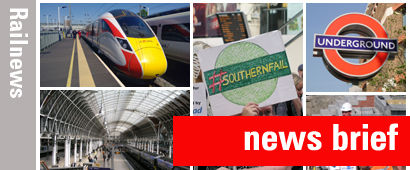A NEW report from the House of Lords Science and Technology Committee published today is calling for railway electrification to be speeded up.
Its inquiry had concerned batteries and hydrogen as sources of energy, and the resulting report – 'Battery strategy goes flat: net zero target at risk' – warns that 'changing from our current dependence on fossil fuels will be a significant undertaking'.
It continues: 'Electric trains have proven performance, and their main advantage is their lighter weight because they do not carry fuel or batteries. Where electrification is uneconomical, trains would be powered by batteries or hydrogen fuel cells. This would include routes with limited usage and routes that are otherwise electrified but have sections where that is too expensive. Electrification will need to be extensive enough such that the remaining sections are manageable for batteries or fuel cells.'
The Committee felt that Britain's railways have some catching-up to do, and concluded: 'The Government must ensure that the railway electrification programme is accelerated in order that it reaches as far as is economically and technically feasible by 2040, when diesel trains will be phased out. The development of battery and fuel cell trains should be supported to serve those parts of the network that remain non-electrified.'
These findings have been supported by the Railway Industry Association, which gave evidence to the Lords' inquiry.
RIA technical director David Clarke said: 'It is good to see the Committee backing the asks of RIA’s Rail Decarbonisation 21 campaign, which is calling for Government to commit to a rolling programme of electrification and fleet orders of battery and hydrogen rolling stock – in line with the Transport Decarbonisation Plan – before COP26 in November.
'This is now the third parliamentary committee to back the recommendations of RIA’s campaign, showing a head of steam amongst policy makers to deliver a clean, environmentally friendly, low carbon rail network. We look forward to working with Peers from across the political spectrum, and the Government, to support the Committee’s findings.'


